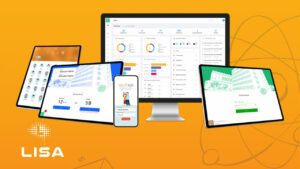Startup makes Philippine classrooms smart using AI
A LOCAL technology company is equipping traditional classrooms with artificial intelligence (AI) to help students learn better. “We give them the chance or the avenue to learn wherever they are, and it levels the playing field,” Elijah John U. Lao, chief executive officer at LISA Tech Philippines, said in an interview. Mr. Lao, who was […]

A LOCAL technology company is equipping traditional classrooms with artificial intelligence (AI) to help students learn better.
“We give them the chance or the avenue to learn wherever they are, and it levels the playing field,” Elijah John U. Lao, chief executive officer at LISA Tech Philippines, said in an interview.
Mr. Lao, who was an information technology (IT) coordinator at an academy that uses iPads for learning, said having gadgets in school distracts students. “The students don’t listen in class, they play games and use social media.”
To solve this problem, Mr. Lao started distributing Eschool Pad or ESP, a mobile device management app for schools and parents that merges mobile device, learning management and mobile application management solutions, as well as parent app into a single platform.
ESP is “software that manages and controls devices so students will not be distracted during school hours,” he said.
It allows schools to embrace mobile and cloud solutions to drive e-learning efficiency, according to the app’s website.
Through seamless integration with Apple School Manager, volume-purchased apps can be installed on all devices or a group of devices instantaneously or according to a specific schedule.
When a lockdown spurred by a coronavirus pandemic started in 2020, many schools were unsure how to transition to online classes, Mr. Lao said.
At that time, he became a distributor of Nugens Tech Solutions, a hardware company that helps schools adapt to the “new normal” of hybrid learning.
In 2023, LISA Tech Philippines was launched to provide smart classroom solutions, allowing students to attend online and in-person classes.
In a smart classroom setup, the local tech company offers four types of devices — microphones, 4K AI cameras for the teacher and their students, a smart board and a smart tablet.
Facilitators can receive instant feedback about a student’s understanding of a topic by making the lecture interactive, Mr. Lao said.
Aside from making hybrid learning possible, LISA Tech also aims to address the shortage of teachers in schools.
“Some teachers leave in the middle of the school year. They go abroad or they resign,” Mr. Lao said. With smart classrooms, one teacher can teach simultaneously in different classrooms, reducing manpower costs.
“They can also use that as a training ground to learn from their co-teachers. So, it’s sort of like a training session,” he added.
Last year, 692 public school teachers in Makati underwent “intensive hybrid interactive smart classroom television orientation” in line with the city’s plans to install Internet of Things devices in 400 classrooms.
“The government is into smart campuses and smart classrooms already,” Mr. Lao said. He added that many schools are now interested in adopting new technologies to improve student engagement.
“They’re very keen on transforming because the students also are digital natives,” he said.
In April, Eastern Visayas State University, established in 1907, started its P1.5-billion smart campus project to modernize its facilities. Other local government with similar initiatives are Sarangani and Ilocos Norte. — Almira Louise S. Martinez























